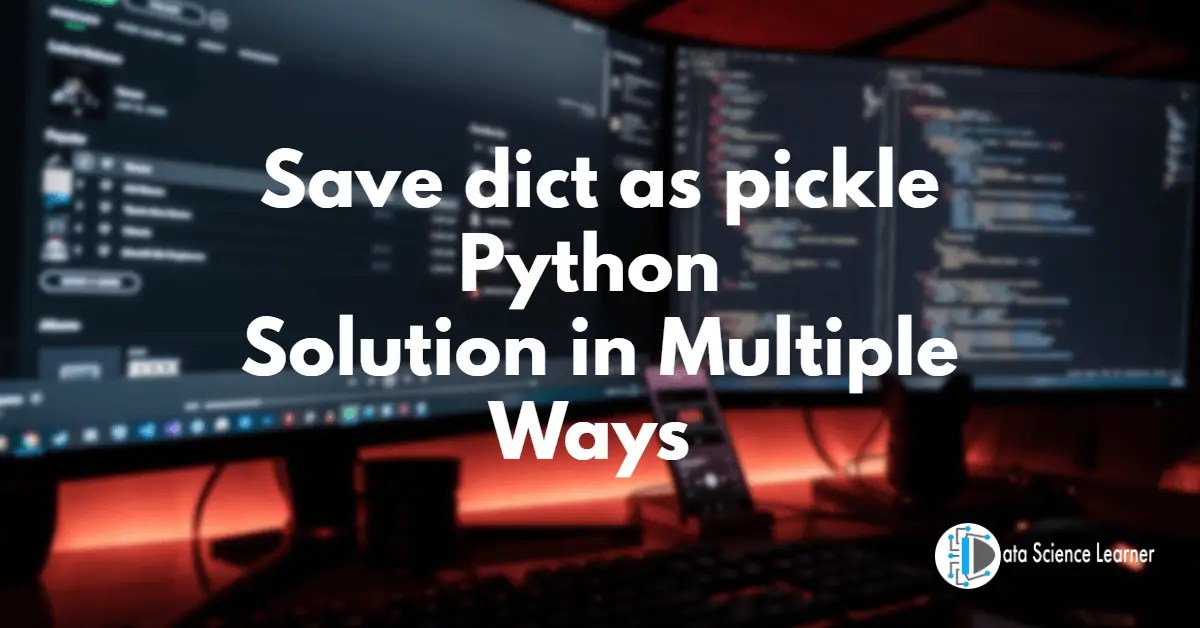We can save dict as pickle Python using pickle.dump() function. This pickle.dump() function is a part of the pickle module in Python. It is a better alternative than a JSON-type object. Actually it stores serialize objects too faster than JSON-type objects. JSON Stores data in human-readable key-value pair but the pickle store in binary format. Anyways in this article, we will explore the complete example to store dict objects in pickle format.
Save dict as pickle Python: ( Solution) –
For better demonstration, we will create a sample Python dict object with minimal data and then we will use the same data to demonstrate.
Here is the full example.
import pickle
sample_dict ={
"key1": 1,
"key2": 2,
"key3": 3
}
with open('sample_file.pickle', 'wb') as obj:
pickle.dump(sample_dict, obj, protocol=pickle.HIGHEST_PROTOCOL)
The first thing we will do is importing the pickle module and open a sample file in write mode. There we will write this pickle data from dict python object.
Pickle handling is too easy to understand more about pickle object reading in Python. Please give a walk throw to the below articles.
How to Read Pickle file in Python : Various Methods with Step
pandas read_pickle method Implementation in Python
Why do we use pickle store in Python?
As I already explained pickle is a too faster serializable object type. See in so many scenarios where the processing takes a lot of time and we need to reuse the Intermediate output as part of the next chain input.
- There if we run the program and somehow in the mid if the program gets failed, there we need to re-run the whole code. In such types of scenarios, we can store the mid | Intermediate output ( dict or any other type ) in pickle format.
- If we created some model or weight matrix, which we require multiple times. There we can export the same in the pickle format and reuse the same.
Thanks
Data Science Learner Team

Join our list
Subscribe to our mailing list and get interesting stuff and updates to your email inbox.







